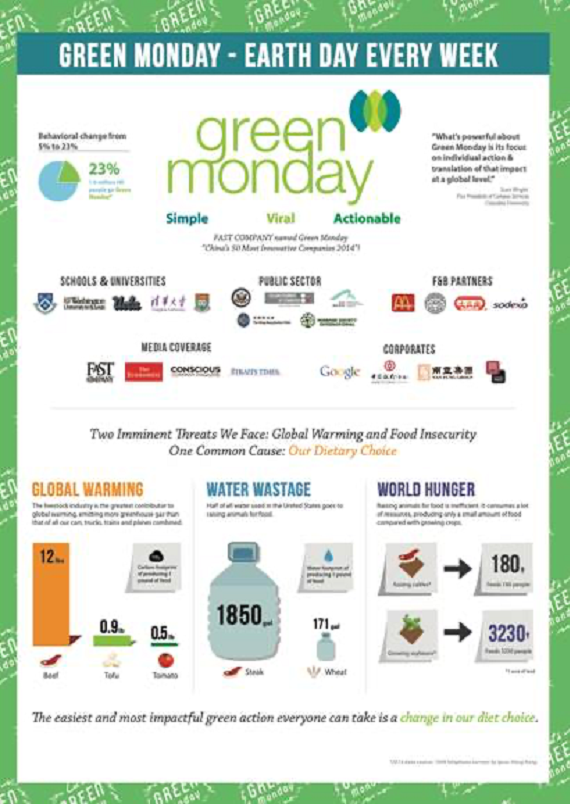When we talk about ‘saving the environment’, changing our mode of transport, switching to clean energy, or even living low-waste usually first spring to mind. Strangely enough, we never seem to consider the impact of how and what we eat, even though the livestock sector itself accounts for 14.5% of global annual greenhouse gas emissions– one of the greatest contributors to global warming. For example, a single kilogram of beef produces 27 kilograms of carbon dioxide, while that same amount of tomatoes emits only 1.1 kilograms of the greenhouse gas. This can be explained by how large areas of forest (that absorb carbon dioxide) must be cleared to make way for farms; as well as how the livestock themselves also contribute by releasing methane (another extremely potent greenhouse gas) through their burps and farts. When it comes to land usage, the American think tank World Resources Institute reports that beef requires roughly 20 times more land per gram of edible animal protein versus typical plant proteins such as beans, peas and lentils. Meat is just as inefficient in terms of water consumption– producing one kilogram of animal protein calls for 100 times more water than one kilogram of plant protein. And then there’s the issue of food security. With increasingly extreme weather conditions and rising temperatures due to global warming, our food supply is predicted to become more unstable over time. This is bad news for import-reliant countries such as Singapore, where we import more than 90% of our food and are very vulnerable to any sort of impact on our food supply. Globally, we also face the Herculean task of having to feed 10 billion mouths by 2050 with progressively depleting resources. Now, going plant-based seems the obvious answer, but what if you simply can’t commit to eating plant-based full time? Fortunately, there is an easier alternative: going Green Monday! By simply eating plant-based once a week, eating one plant-based meal per day, or cutting out high-impact foods (e.g. red meat), you can still be part of the solution to reduce our impact on the environment. The Green Monday movement in Hong Kong has already resulted in a whopping 900,000 tons of carbon emissions prevented annually. Roughly 40,000,000 trees are needed to absorb this same amount of carbon dioxide per year. Furthermore, 375,000,000,000 litres of water can be saved each year as well, which equates to drinking water for roughly 512 million people. We now stand at a crossroads. Do we continue with the status quo, or do we consciously choose to change our everyday lives and our diet for the greater good? Ultimately, the power and responsibility lies with us, and how we make our choices from here on out. | 
